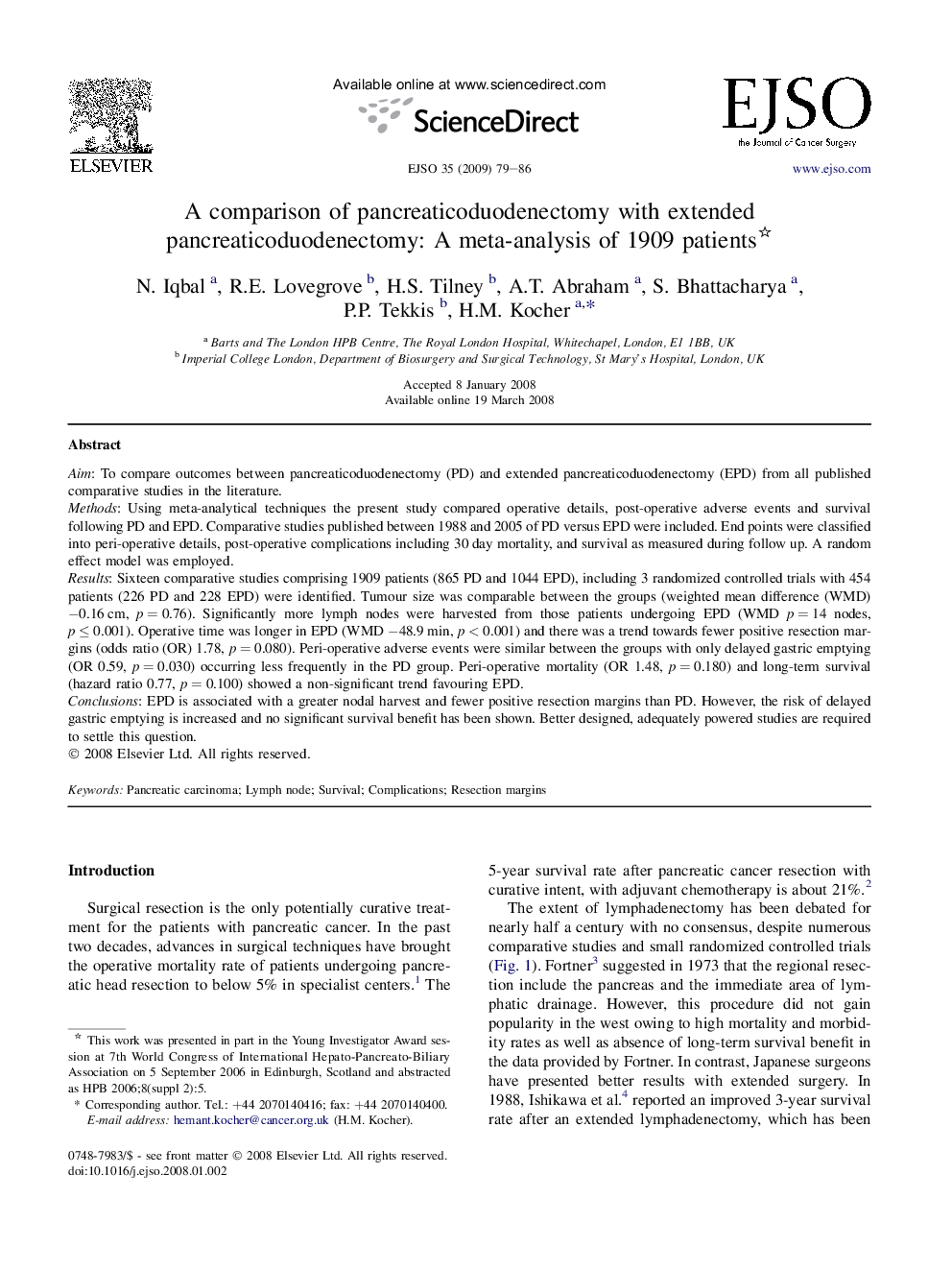| Article ID | Journal | Published Year | Pages | File Type |
|---|---|---|---|---|
| 3986647 | European Journal of Surgical Oncology (EJSO) | 2009 | 8 Pages |
AimTo compare outcomes between pancreaticoduodenectomy (PD) and extended pancreaticoduodenectomy (EPD) from all published comparative studies in the literature.MethodsUsing meta-analytical techniques the present study compared operative details, post-operative adverse events and survival following PD and EPD. Comparative studies published between 1988 and 2005 of PD versus EPD were included. End points were classified into peri-operative details, post-operative complications including 30 day mortality, and survival as measured during follow up. A random effect model was employed.ResultsSixteen comparative studies comprising 1909 patients (865 PD and 1044 EPD), including 3 randomized controlled trials with 454 patients (226 PD and 228 EPD) were identified. Tumour size was comparable between the groups (weighted mean difference (WMD) −0.16 cm, p = 0.76). Significantly more lymph nodes were harvested from those patients undergoing EPD (WMD p = 14 nodes, p ≤ 0.001). Operative time was longer in EPD (WMD −48.9 min, p < 0.001) and there was a trend towards fewer positive resection margins (odds ratio (OR) 1.78, p = 0.080). Peri-operative adverse events were similar between the groups with only delayed gastric emptying (OR 0.59, p = 0.030) occurring less frequently in the PD group. Peri-operative mortality (OR 1.48, p = 0.180) and long-term survival (hazard ratio 0.77, p = 0.100) showed a non-significant trend favouring EPD.ConclusionsEPD is associated with a greater nodal harvest and fewer positive resection margins than PD. However, the risk of delayed gastric emptying is increased and no significant survival benefit has been shown. Better designed, adequately powered studies are required to settle this question.
